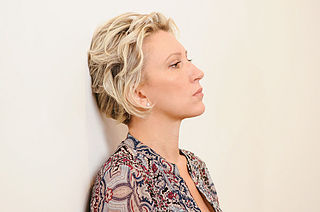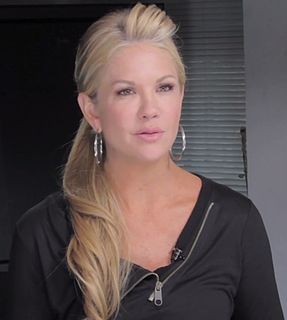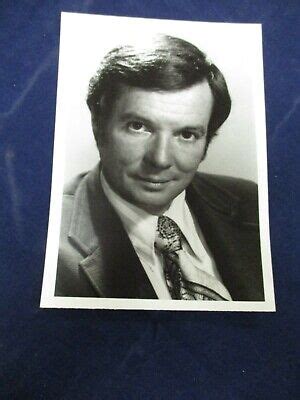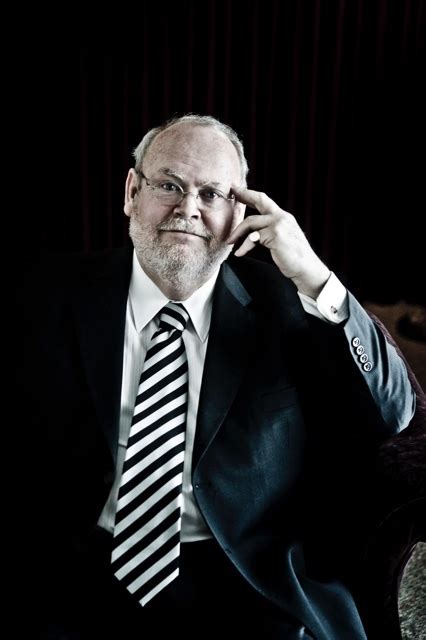Top 1200 Recovering From Grief Quotes & Sayings
Explore popular Recovering From Grief quotes.
Last updated on April 14, 2025.
Grief is neither a disorder nor a healing process; it is a sign of health itself, a whole and natural gesture of love. Nor must we see grief as a step toward something better. No matter how much it hurts-and it may be the greatest pain in life-grief can be an end in itself, a pure expression of love.
Grief is accepting the reality of what is. That is grief's job and purpose-to allow us to come to terms with the way things really are, so that we can move on. Grief is a gift of God. Without it, we would all be condemned to a life of continually denying reality, arguing or protesting against reality, and never growing from the realities we experience.
One of the difficulties with grief research is that it risks making certain kinds of grief seem normal and others abnormal - and of course having a sense of the contours of grief is, I think, truly useful, one has to remember it's not a science, it's an individual reckoning, which science is just trying to help us describe.
All those years I fell for the great palace lie that grief should be gotten over as quickly as possible and as privately. But, what I've discovered is that the lifelong fear of grief keeps us in a barren, isolated place, and that only grieving can heal grief. The passage of time will lessen the acuteness, but time alone, without the direct experience of grief, will not heal it.
I do a lot of work with the Red Cross, too. As a reporter, before I went to entertainment news, I tended to follow natural disasters. I went to Charleston, South Carolina, after Hurricane Hugo. I went to Miami the year after they were recovering from Hurricane Andrew. I came to California when they were recovering from a big earthquake. I've seen the Red Cross and how they stay there years after a natural disaster. They're not just there when a disaster is happening.
I think what I was unconsciously expressing in 'Black Rainbow' was a very abstract and metaphorical grief, in the way I had suppressed my grief about my mother dying. In retrospect I realise I started writing 'Mandy' as a sort of antidote to that, to sort of express those emotions, to purge that grief.
Whether we experience it or not, grief accompanies all the major changes in our lives. When we realize that we have grieved before and recovered, we see that we may recover this time as well. It is more natural to recover than to halt in the tracks of grief forever. Our expectations, willingness and beliefs are all essential to our recovery from grief. It is right to expect to recover, no matter how great the loss. Recovery is the normal way .
Grief is real because loss is real. Each grief has its own imprint, as distinctive and as unique as the person we lost. The pain of loss is so intense, so heartbreaking, because in loving we deeply connect with another human being, and grief is the reflection of the connection that has been lost. We think we want to avoid the grief, but really it is the pain of the loss we want to avoid. Grief is the healing process that ultimately brings us comfort in our pain.
Accept the things I cannot change," I said. "And pray for the courage to change the things I can, as well as the wisdom to know the difference." The thing is... I know this is good advice. It's called the Serenity Prayer, and it really does put things in perspective (it's suppose to be for recovering alcoholics, but it helps recovering freakoutaholics, like me, as well).
The interesting thing about grief, I think, is that it is its own size. It is not the size of you. It is its own size. And grief comes to you. You know what I mean? I’ve always liked that phrase “He was visited by grief,” because that’s really what it is. Grief is its own thing. It’s not like it’s in me and I’m going to deal with it. It’s a thing, and you have to be okay with its presence. If you try to ignore it, it will be like a wolf at your door.
Recovering from suffering is not like recovering from a disease. Many people don’t come out healed; they come out different. They crash through the logic of individual utility and behave paradoxically. Instead of recoiling from the sorts of loving commitments that almost always involve suffering, they throw themselves more deeply into them. Even while experiencing the worst and most lacerating consequences, some people double down on vulnerability. They hurl themselves deeper and gratefully into their art, loved ones and commitments.
To its committed members (the Democratic Party) was still the party of heart, humanity, and justice, but to those removed a few paces it looked like Captain Hook’s crew–ambulance-chasing lawyers, rapacious public policy grants persons, civil rights gamesmen, ditzy-brained movie stars, fat-assed civil servant desk squatters, recovering alcoholics, recovering wife-beaters, recovering child-buggers, and so forth and so on, a grotesque line-up of ill-mannered self-pitying, caterwauling freeloaders banging their tin cups on the pavement demanding handouts.
Grief causes you to leave yourself. You step outside your narrow little pelt. And you can’t feel grief unless you’ve had love before it - grief is the final outcome of love, because it’s love lost. […] It’s the cycle of love completed: to love, to lose, to feel grief, to leave, and then to love again. Grief is the awareness that you will have to be alone, and there is nothing beyond that because being alone is the ultimate final destiny of each individual living creature. That’s what death is, the great loneliness.
New grief, when it came, you could feel filling the air. It took up all the room there was. The place itself, the whole place, became a reminder of the absence of the hurt or the dead or the missing one. I don't believe that grief passes away. It has its time and place forever. More time is added to it; it becomes a story within a story. But grief and griever alike endure.
Back in the day, I was the first non-recovering doctor working in recovery. People would say, 'You can't do that! We need recovering guys in this.' But usually recovering doctors have a lot of baggage and so there's a certain amount of liability with a recovering doctor. But of course it can be ideal.
Sleep is all about recovering. So if you're not sleeping, you're not recovering. And if you're going to break your body down a lot, you better find ways to build it back up. And the only way to do that is get a lot of sleep. So for me, I go to bed at like 8:30, 9:00. As soon as I put my kids to bed. Because I'm up at 5:30 the next day.
























































